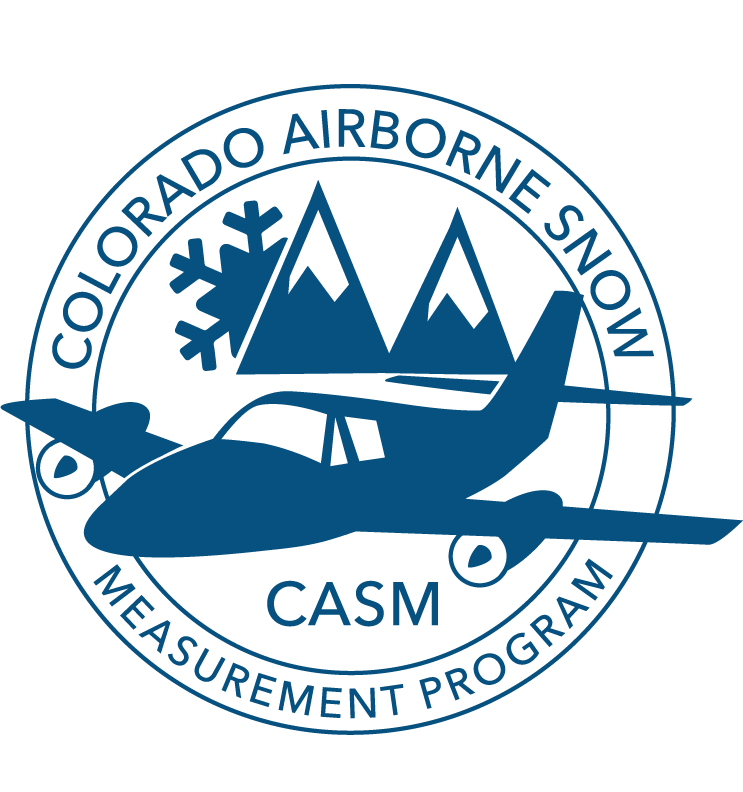What is the Airborne Snow Observatory (ASO)?
The Airborne Snow Observatories (ASO) uses paired airborne lidar and imaging spectrometer sensors coupled with a snow dynamics model to measure snow depth and albedo and retrieve Snow Water Equivalent (SWE, the liquid depth of water stored in the snowpack) across large river basins at a high spatial resolution (Figure 2). The resulting data provides high elevation snowpack measurements with detail, accuracy, and decision-support value unprecedented in water management (Figure 1).
ASO Data Snapshot, Blue River, CO, 2019
Ongoing ASO Projects in Colorado
The ASO program has been active in Colorado since 2013, with numerous science, applied science, and operations support efforts. The following list details ASO activity in CO to-date and planned:
Uncompahgre River above Ridgway Reservoir; 1-4 flights per year 2013-2017
Grand Mesa; NASA Terrestrial Hydrology Program, Science support
Rio Grande and Conejos Rivers; 1-2 flights per year 2015-2016, 2 flights planned in Conejos 2021
Upper Gunnison River (East and Taylor Rivers); 1-2 flights per year 2016, 2018-2019
Blue River above Dillon Reservoir, 2 flights 2019, 2 flights planned 2021
Animas River above Durango; 2 flights planned 2021
Pinos River above Vallecito Reservoir; 2 flights planned 2021
Dolores River above McPhee Reservoir; 2 flights planned 2021


